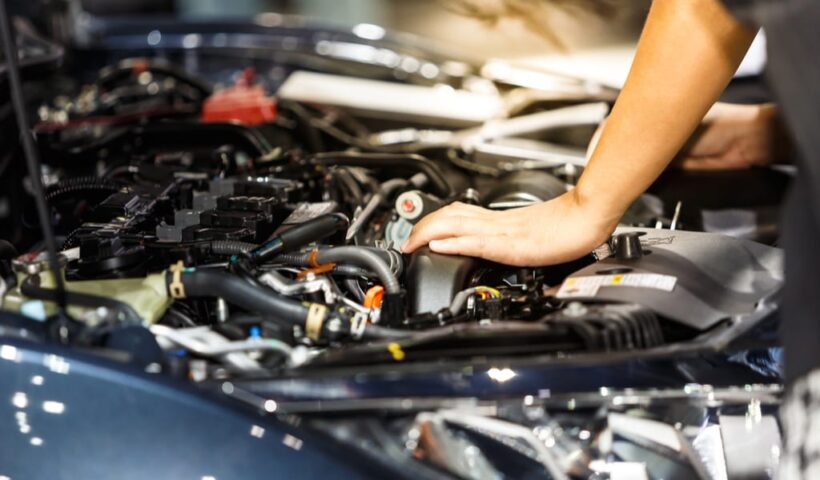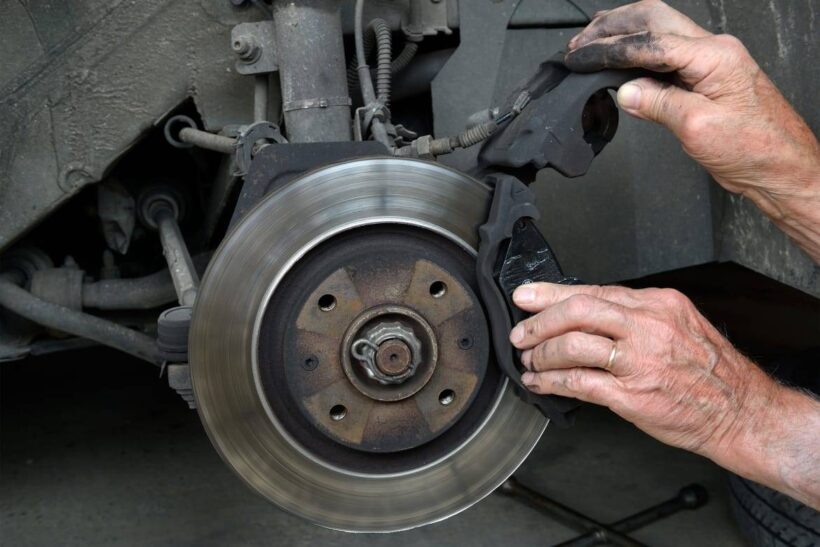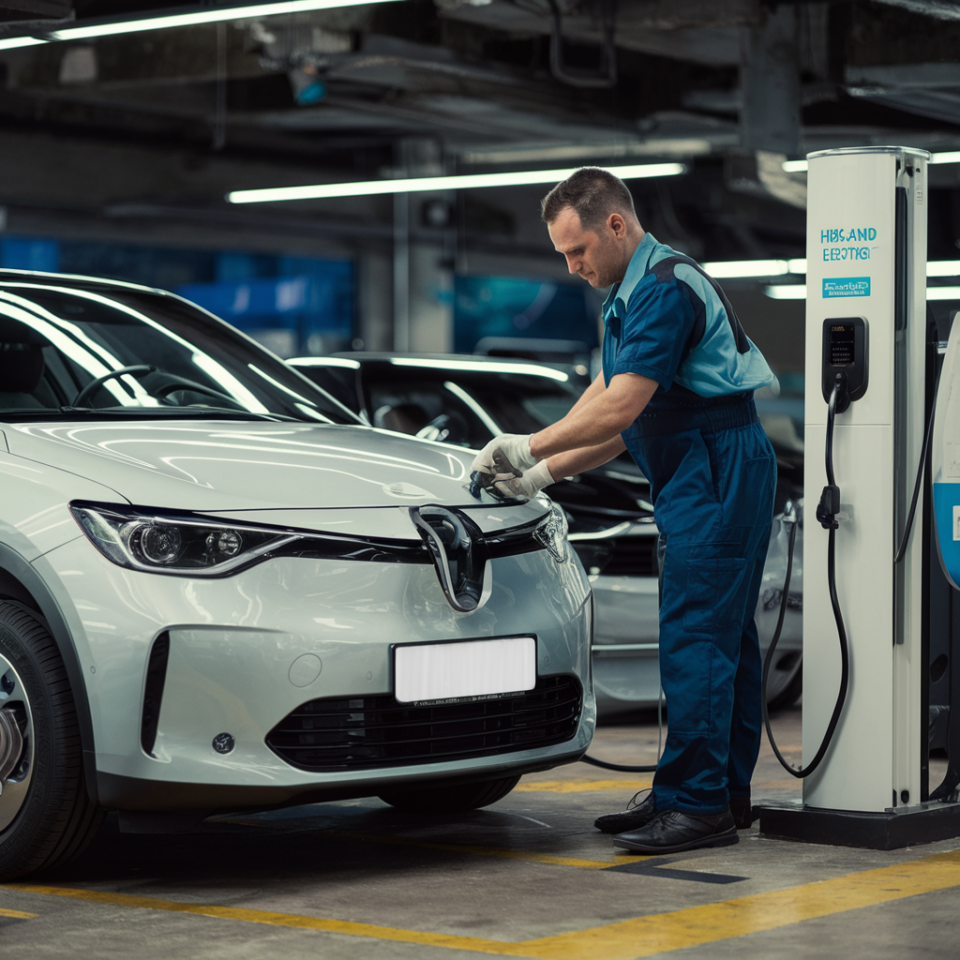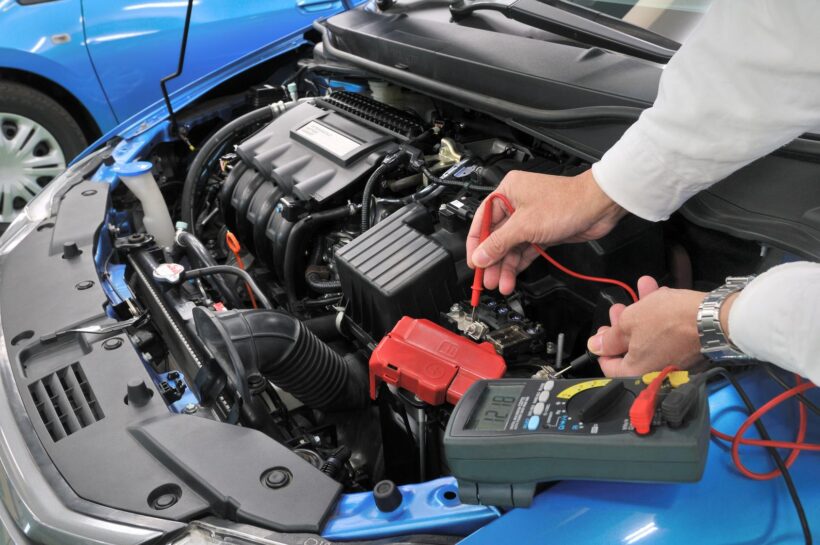Experts predict that by the end of the year, over 16% of new car sales will be electric or hybrid models. As these space-age electric rides take over the roads, everyone is having to adapt – from the mechanics to the insurance agents to the drivers themselves.
One thing’s for sure, the future of driving is looking a whole lot greener and more high-voltage than anyone could have imagined just a few years ago.
For regular drivers, there’s definitely an adjustment period to get used to the unique maintenance and repair needs. There is a whole new world under the hood that you have to learn.
London Bridge Auto and Transmission Repair, known for their expertise in auto repair in Virginia Beach, VA, have curated this guide to help you navigate electric and hybrid vehicle maintenance and repair to keep your car running smoothly.
1. Keep an Eye on the Battery

The battery is the heart that keeps electric and hybrid cars alive, so it needs the right care and maintenance to keep pumping for years. Neglect that, and you will be looking at crazy expensive repair bills and replacements way too soon.
The key is managing that charge level—not too full, not too empty. Experts recommend staying between 20% and 80% charged as much as possible. Let it drift below 20% or hover at 100% for too long, and that’s when degradation starts munching away over time.
Luckily, most modern electric cars have smart settings to control charging times and levels. Take advantage of those cool features to automatically keep your ride’s battery cruising in that sweet 20-80% spot.
2. Pay Attention to the Tires
When repairing or maintaining your EV or hybrid vehicle, attend to the tires. These cars are usually heavier than those with internal combustion engines. In addition to the weight caused by the size of the battery, there is the issue of instant torque generated by electric motors. The torque and weight make the tires more susceptible to wear.
Experienced mechanics understand that EVs and hybrid vehicles require regular analysis, and tire rotations ensure everything works perfectly. Consider investing in tires designed for EVs as they are more durable compared to the conventional tires.
3. Fluid Changes
Hybrid vehicles require engine oil changes almost as frequently as a regularly as cars running on regular combustion engines. Fluid changes are necessary for smooth performance, especially transmission fluid, which ensures gear shifts are optimal and wear and tear on transmission components is minimized.
The coolant is also a key fluid to monitor in hybrid vehicles to ensure the levels are right and refill as required to prevent overheating and damage.
Keep in mind that hybrid vehicles run on a sophisticated cooling system that regulates the temperature of the battery along with other components.
One of the benefits of most electric vehicles is they don’t need fluid changes or transmission maintenance. The lubricant used for the direct-drive system is part of a sealed system and does not need changing. However, as aforementioned, there are exemptions, so it is essential to do some research on your vehicle and read the owner’s manual.
4. Perform Regular Maintenance
To guarantee lifespan and best performance, inspect your battery regularly and replace it as needed. Hybrid vehicles may run on both gasoline and electricity, implying that they use both a combustion engine and an electric motor.
Traditional combustion engines still need regular maintenance such as oil checks and changes. While electric vehicles require less maintenance than conventional vehicles, a visit to the Auto Repair Shop Virginia Beach VA is necessary. Most electronic components of EVs require limited to no maintenance, but fluids like engine oil need regular maintenance.
It is also essential to verse yourself with the owner’s manual. Hence, you understand the vehicle’s specifications and get other vital information to make the most out of your vehicle’s wear.
5. Check Your Breaks

You must pay attention to your hybrid and EV brakes. Note that most brakes need replacement every 25,000 miles. However, since hybrid systems rely on generative braking, you can wait until you hit the 50,000-mile mark.
One of the benefits of electric vehicles is their brakes tend to outlast those of traditional vehicles since the electric motor in EVs contributes most to slowing down the car. This results in less wear and tear. While that is the case, no brake pads last forever, so you need brake inspection and service at least every five years.
6. Find a Reliable Electric and Hybrid Repair Shop
Using an electric and hybrid auto repair Virginia Beach VA shop with knowledgeable staff is recommended.
Hybrids and EVs are really hitting the mainstream these days, but surprisingly, finding a mechanic qualified to work on those futuristic rides can still be a hassle. When hunting for an auto repair shop worthy of your electrified car, there are a few key things to zero in on. First up, don’t skimp on checking their reputation. Whether it is online reviews, word-of-mouth, or credentials, do your research to weed out any potential bad apples.
You’ll also want to make sure they have all the specialized tools and tech needed to service these high-voltage systems properly. It makes sense to bring your car to an auto shop with the newest technology for maintenance and repairs because EVs and hybrid vehicles have particular components that require specialist tools and equipment.
Takeaway
Lower emissions and increased fuel economy are among the most outstanding advantages of using hybrid and electric cars. However, they still have a few downsides, such as their complicated systems, which often require expert maintenance and repair.
Understanding the best EV and hybrid vehicle maintenance practices will ensure that your car runs efficiently, and you will avoid high repair costs due to the complex technologies and components involved.


